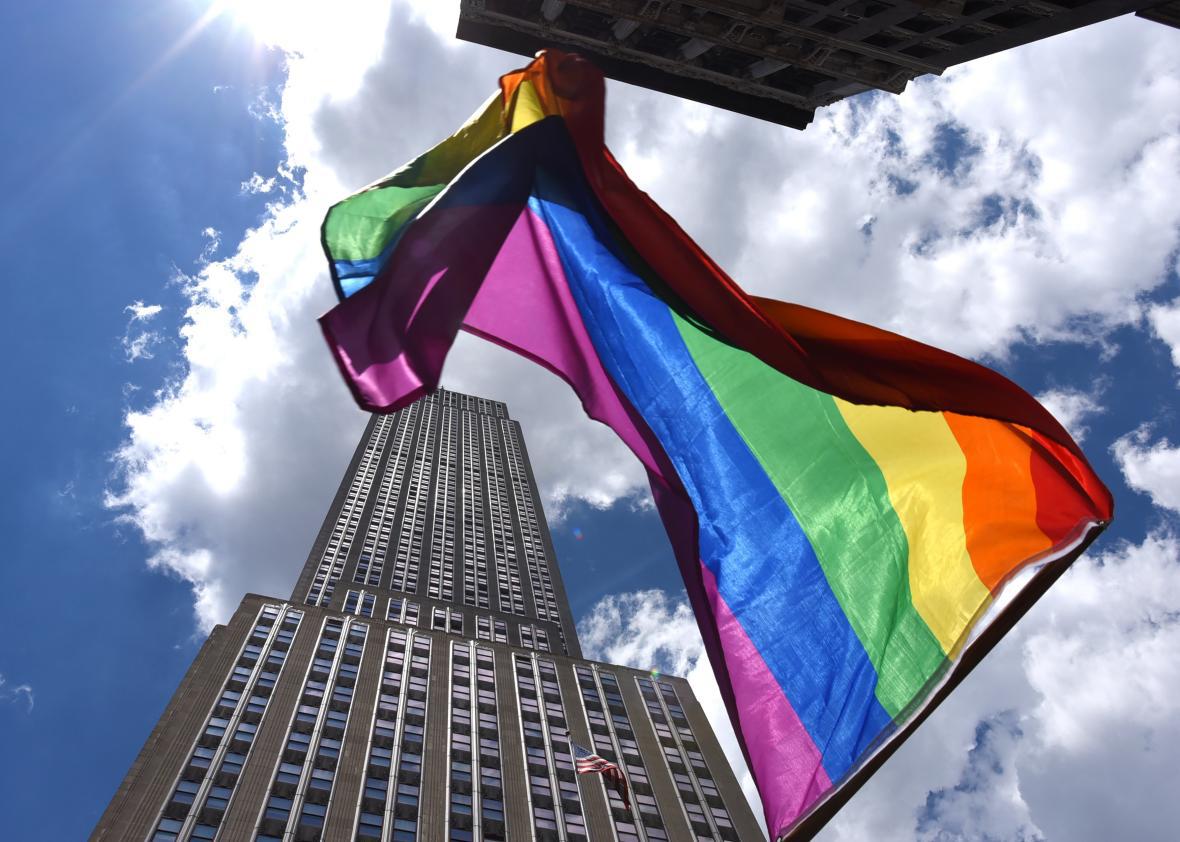One of the most memorable motifs is the presidency of Donald Trump is the notion that Muslims are somehow incapable of assimilating into American culture. “Assimilation has been very hard,” Trump told Sean Hannity last summer, in response to a question about how to vet Muslim immigrants to determine if they want to proselytize and import theocracy. “I won’t say nonexistent, but it gets to be pretty close. And I’m talking about second and third generation. For some reason, there’s no real assimilation.”
On at least one issue, however, recent surveys suggest Trump’s fears about assimilation are directed at the wrong group. According to a poll of American Muslims conducted this year by Pew, more than half (52 percent) say “homosexuality should be accepted by society.” In a wider survey on the same question last year, 63 percent of the general population said the same—compared to just over a third of white evangelicals. On the question of LGBTQ acceptance, in other words, American Muslims look much more like “mainstream” America than white evangelicals do.
A 2014 Pew survey that asked specifically about same-sex marriage turned up similar results: 53 percent of the general population favored legalization, while just 28 percent of evangelicals said the same. Among Muslims, support was at 42 percent. Which group looks like its values are approaching the American consensus, and which one looks like a population of “unassimilated” religious extremists?
Let me pause to say that’s an overly broad brush with which to paint evangelicals. The gap between young white evangelicals and their elders has widened dramatically in recent years, for example, with almost half of Millennial and Generation X cohorts now favoring gay marriage. But white evangelicals as a whole remain dramatically set apart from the culture on a question with major social, interpersonal, and political implications. There’s a reason that many conservative Christians who object to same-sex relationships now frame their opposition not as “traditional” but as “counter-cultural.”
Meanwhile, American Muslims’ acceptance of homosexuality is striking for two reasons. First, it is growing with remarkable speed. A decade ago, just 27 percent of American Muslims said homosexuality should be accepted, while 61 percent said it should be discouraged. Today, the “accepters” outnumber the “discouragers” by almost 20 percentage points. And these numbers are also remarkable because of how dramatically American Muslims differ from the global Muslim population, which is overwhelmingly opposed to homosexuality. This kind of change is practically the textbook definition of “assimilation.”
The big picture is that despite our president’s flailing attempts to reignite the culture wars, Americans keep moving inexorably toward acceptance of LGBTQ people. Two years after Obergefell v. Hodges, support for same-sex marriage is rising among just about every religious, racial, and generational demographic. The majority of Americans believe transgender people should be allowed to serve in the military, just to pick another issue at random. At this point it’s fair to say that acceptance of LGBTQ people is a mainstream American value. If certain religious groups can’t adjust to the tolerance of the culture in the country where they have chosen to live, well, that would be a real shame.
